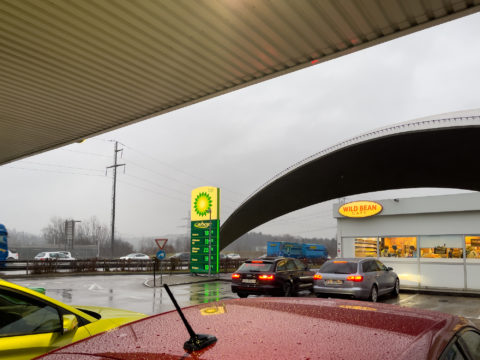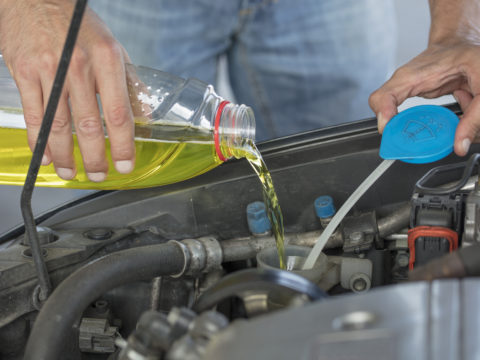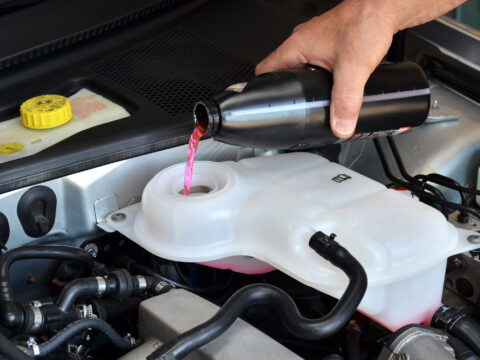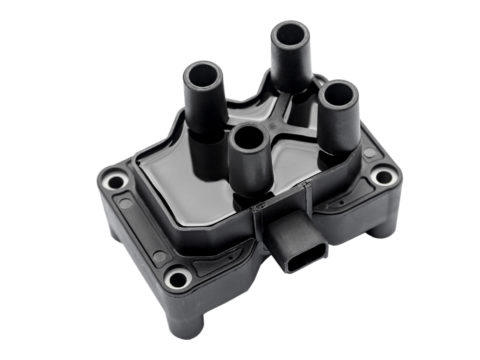If you have ever had a vehicle in storage or perhaps sitting in your driveway or garage for an extended period, you may be wondering: how long does diesel last in a car tank?
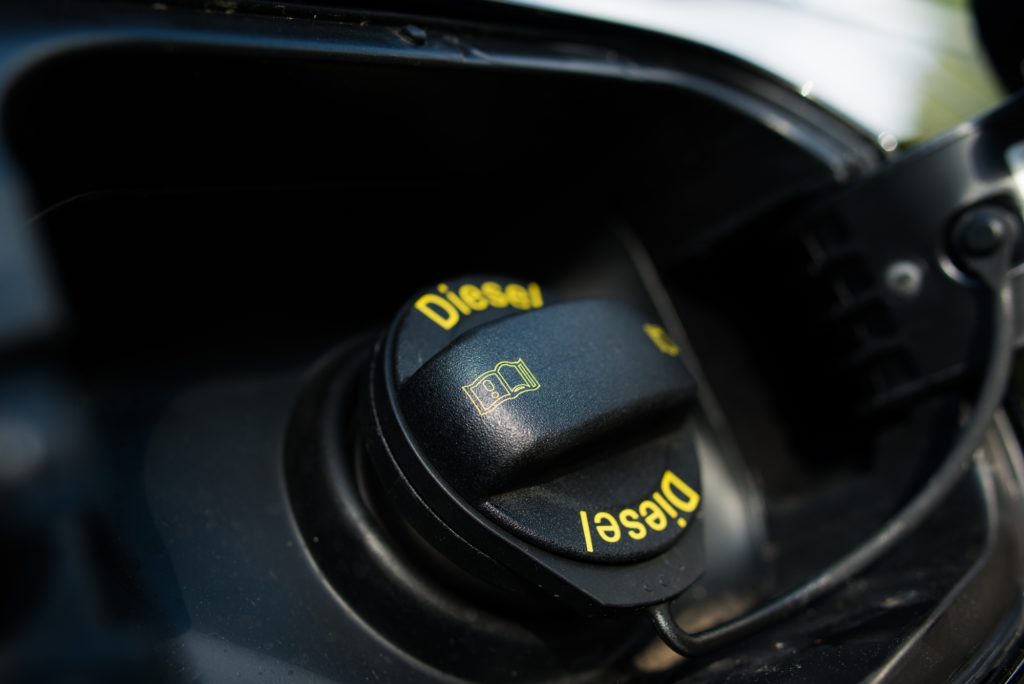
Contents
What Is the Shelf Life of Diesel in a Car Tank?
The shelf life of diesel in a car tank is twelve months under ideal conditions. Regular gasoline has a shorter life span, breaking down after three to six months of storage. Extreme heat, contaminants, and other factors can decrease the time that fuel can last in your tank.
However, with the use of fuel stabilizers and biocides, there are ways of extending the life of your diesel fuel so that it is still usable after several years.
How Do You Tell Bad Fuel From Fresh Fuel?
You may be aware that the diesel in your car tank has been sitting for a year or more, but how can you tell if it is still good? There are several indicators to tell that your fuel has outlived its shelf life.
Discoloration
The color of fresh diesel is light yellow-brown. If you notice your diesel has turned dark or muddy in color, it is a sign that the fuel has gone bad.
Bad Smell
In addition to being able to see if your diesel has gone bad by discoloration, you can also use your nose. Bad fuel will have a foul odor indicating that it is past its prime.
Engine Performance
Bad fuel can lead to poor engine performance. Several signs indicate bad fuel is causing a decrease in engine performance, such as the emission of foul-smelling white or black exhaust. Bad fuel may also cause your car to idle rough, make it difficult to start, or you may notice a loss of power while accelerating.
Gummy Sediment
The degradation of hydrocarbons in diesel fuel creates a gummy sediment. Extreme heat speeds up the deterioration of fuel and promotes bacteria growth in your tank.
This gummy residue can block fuel lines and cause damage to internal engine components.
What Factors Determine How Long Diesel Lasts in a Tank?
A number of factors can affect the shelf life of diesel fuel. By understanding what causes diesel to go bad, you can determine how long diesel will last in your tank.
Oxidation/Hydrolysis
Stored fuel undergoes a chemical reaction. Oxidation reactions happen when the fuel is exposed to oxygen, and hydrolysis reactions occur when the fuel is exposed to water. Both of these reactions cause fuel to darken and develop gummy sediment and sludge.
Phase Separation
Phase separation is the process of ethanol separating from gasoline when left for long periods. The entire process speeds up if fuel is exposed to water. The mixture of ethanol and water can negatively affect the performance of your engine and cause corrosion resulting in a costly repair.
Destabilization
Dirt and dust can contain certain metallic compounds like traces of copper and zinc. Metallic contaminants can get in your car tank and destabilize diesel fuel.
Sediment Deposits
Diesel is no longer usable if sediment and gummy deposits cause the fuel to become more viscous. Harmful microbes can form and sink to the bottom of the tank, building up with dirt creating a sludge-like substance. This will significantly hinder your engine from maximum performance and could cause damage to internal components.
Microbial Contamination
The longer diesel is stored, the more water is likely to accumulate in the fuel. This causes the growth of bacteria and microbes, which begin to break down the fuel in your tank.
Microbes are also responsible for tank corrosion and clogging fuel filters. The use of a quality biocide is the only way to kill microbial contamination.
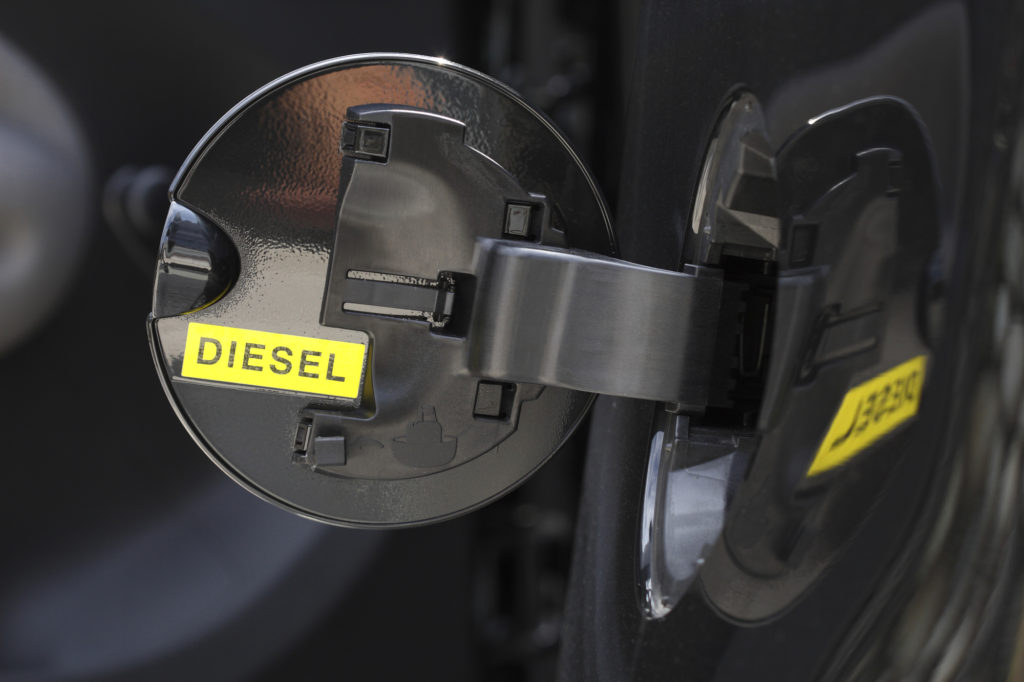
How Do You Prevent Diesel From Going Bad in Your Car Tank?
Diesel lasts a long time in the tank of your car or truck. You can make it last even longer by preventing it from going bad.
Store at Proper Temperature
Extreme heat causes the degradation of hydrocarbons in fuel that creates gummy sediment and the growth of bacteria. Proper storage of diesel in a temperature-controlled area—ideally between 55° and 80° Fahrenheit—will extend the life of your fuel.
Do Not Let Fuel Sit For Too Long
Knowing that diesel has a shelf life of approximately twelve months, do not leave your vehicle in storage for more than a year. If you do have to park your car for an extended period, consider using a fuel stabilizer.
Fuel Stabilizers
When storing a car for an extended time, you will want to add a fuel stabilizer to your fuel to prevent it from going bad in your tank. Adding a fuel stabilizer slows down the oxidation process in diesel and makes it last a lot longer. Some products add methanol to the stabilizer so that fuel burns cleaner and minimizes corrosion.
Biocides
Biocides kill and prevent the growth of biological contaminants. Water in your tank is a breeding ground for harmful microbes and fungi. The result is the formation of a sludge-like residue that will significantly decrease the shelf life of your diesel. Biocides kill or suppress microbes from forming and contaminating the fuel in your tank.
Summary: How Long Does Diesel Last?
The average lifespan of diesel is twelve months before it starts to break down. By keeping your fuel free of water and oxygen, you can eliminate the rapid growth of microbes and bacteria that produce gummy deposits and sediment in your fuel.
It is possible to extend the shelf life of your diesel with the use of fuel stabilizers or biocides, preventing contaminants from breaking down fuel and creating harmful sludge.
Proper storage of fuel, avoiding extreme heat, and using a fuel stabilizer will allow you to confidently store your vehicle, knowing that the fuel in your tank will last a year or more.

